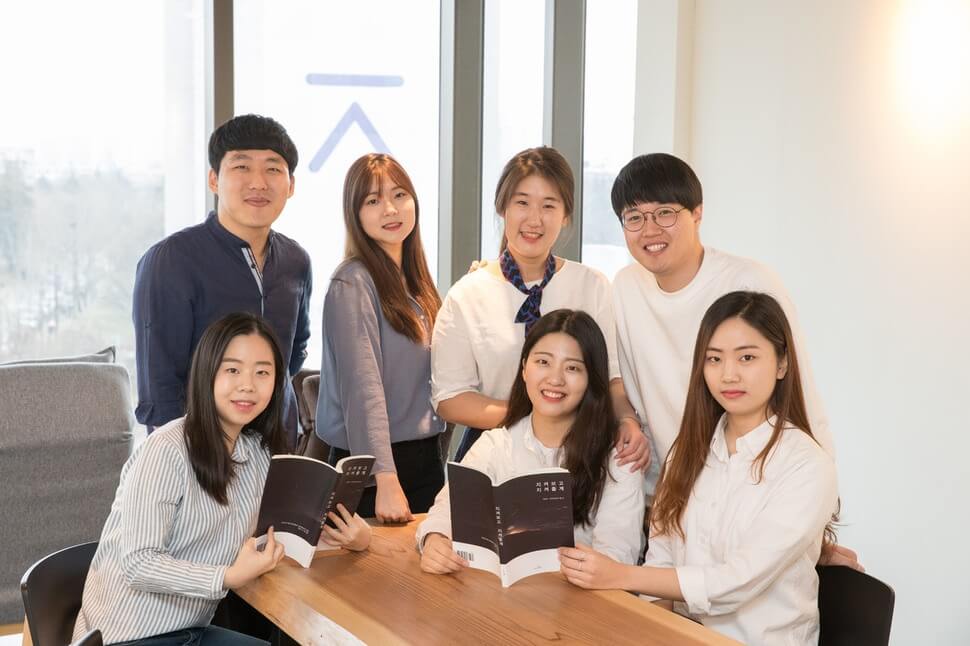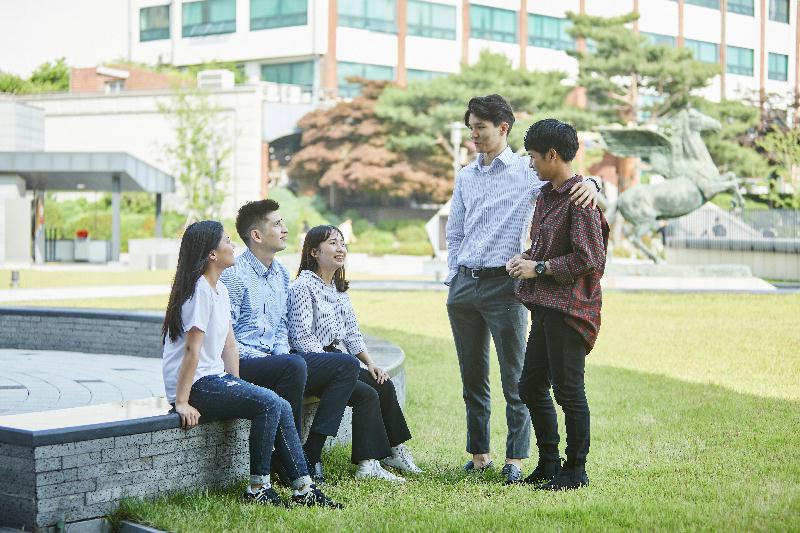Physical Address
304 North Cardinal St.
Dorchester Center, MA 02124
Physical Address
304 North Cardinal St.
Dorchester Center, MA 02124

So, you’ve recently graduated from high school, and you’re thinking, “Studying in Korea looks amazing, I want to study there!” But how?! You’re not alone. Korea’s rich cultural diversity makes it an excellent place to live, study, and work. We will outline the dos and dont’s to help you understand how Korean universities operate and what they look for in prospective students. So listen up! Let’s examine this methodically and reduce it as much as possible:

Because the education system is second to none…obviously! But, regardless of how much you adore Korea, you must be aware of the obstacles you will face, such as the environment, homesickness, and so on. Aside from that, if you are a tough cookie, Korea should be one of your greatest experiences! Here are some reasons why Korea is so amazing:
The nation is also a leader in technology and innovation, offering cutting-edge educational facilities and research opportunities. Korean universities often have strong ties with industry leaders, providing practical experiences and internship opportunities that equip students with skills to excel in a global job market. Students can tap into a network of global companies while enjoying Korea’s dynamic tech-driven environment.
Furthermore, Korean universities are increasingly participating in international exchange programmes, offering students unique opportunities to study abroad and gain a wide array of cultural experiences. This global exposure not only broadens academic perspectives but also enhances career prospects by developing cross-cultural competencies.
There are numerous universities from which to pick in Korea. This makes it easier for you to select the university that best suits you. But where should I begin, you might ask? Remember that independent research is the finest advise we can give you. Create a list of the universities that you find intriguing. Are you a man of the arts? Are you an expert in mathematics? Whatever fits you, make a wise decision. A further consideration is the application process, which is often conducted entirely in Korean (although many universities
are striving to make the application process available in English to make it easier for international students).
When considering university options, it’s important to think about housing. Korean universities generally provide on-campus dormitories, which are affordable and convenient. Alternatively, students can opt for private housing, offering greater independence. Prior research into the cost of living and housing options will better prepare you for the transition, ensuring a smooth adjustment to life in Korea.
Many universities provide support services dedicated to helping international students find accommodation, offering guidance on everything from apartment hunting to understanding rental agreements. These services ensure that students can focus on their studies and adjust smoothly to their new living environment in Korea.
Seriously, DO NOT put things off! As application deadlines approach, you will become increasingly frustrated. Universities in Korea administer entrance tests only once every year (usually in October or so). If you miss the initial application deadline, you must consume another birthday cake before you may reapply.
This is similar to the science fairs and career fairs you’ve always attended in high school, with the exception that this is a University fair. Korea is excellent at conducting university fairs annually for students interested in studying in Korea. Although this is more prevalent in larger cities such as Seoul, the majority of Korean cities host university fairs where universities congregate to recruit international students and showcase their programmes. Make sure you attend at least one of these university fairs to determine your best option. It is quite useful! If financial difficulties prevent you from flying to Korea, contact the university personnel (very early) for more information. This is the optimal alternative.
Typically, many university counsellors will be available to help you better comprehend the institution. They will instantly assist you through the entire application procedure, and some even accept applications on the same day.
Now you know the university you wish to attend. You are aware of all the dates, etc. Now comes the difficult part. It is time to get your high school transcripts, recommendation letters, etc. Start this procedure as soon as you can. There will be other university fairs throughout the year at which you can learn more about your options. The majority of them will have completely different admission standards, therefore it is crucial that you contact them in advance to ensure that you have everything you need when you decide to apply. Do not put off doing this!

If steps one, two, and three are intact, you have mastered the difficult material. Now let’s move on to frequently asked questions.
Define clever. Many individuals erroneously believe that there are as many chances for international students to study in South Korea as there are for South Korean students to study abroad. You may believe that the typical prerequisites include excellent grades, amazing Korean language abilities, and a mountain of cash to cover tuition and living expenses, but you are WRONG! In reality, some colleges offer a very high foreign enrollment quota; hence, it may be easier for you to enrol in a Korean university than for a native Korean!
Different universities will have different admission requirements. Some require Korean, while others do not. Some colleges, for instance, will want you to obtain exceptionally high grades on your Korean proficiency exams, participate in several extracurricular activities, etc. In reality, though, the only thing that matters is how “well-rounded” you are.
Are you an open guy/girl? You can still be admitted even if you performed poorly on the test of Korean proficiency. Trust us! Consider the Korean exam your confidence test. Do you intend to attend college seriously? That is it.
You will be shocked to discover that most institutions expect international students to be proficient in Korean, despite the fact that you are not. The universities simply want students to take attending their institutions seriously. Even if you performed poorly on the test, your Korean will improve drastically over time. However, if you worked hard to demonstrate your willingness to try on your application, you should be readily considered. What truly matters in a person is their well-roundedness!
To apply to Korean universities, most international students need to provide results from standardized tests, including the Test of Proficiency in Korean (TOPIK), along with transcripts and letters of recommendation. While high scores on these assessments can bolster an application, universities also seek well-rounded candidates with extracurricular achievements. It’s beneficial to demonstrate leadership, community involvement, or achievements in arts and sports.
Additionally, recommendation letters play a significant role in the application process. It serves as evidence that you are a valuable member of the university community. Ensure you begin acquiring them well in advance of your trip to Korea. Communicate with your High School professors and, if you have one, your part-time employment (if you have one) to obtain strong recommendation letters that can demonstrate to the university of your choice what type of student you are! Also, ensure that you make many copies of the letter and that your professor signs each one. You’ll be overjoyed to learn that your recommendation letters helped you gain admission to the desired university.

Many Korean universities offer scholarships specifically for international students. The Global Korea Scholarship is a prominent programme providing financial assistance, covering tuition, airfare, and living expenses. Universities often have their own scholarships, tailored for excellence in academics or specific talents. Prospective students should explore these opportunities early and prepare applications carefully, as funding can significantly ease financial burdens while studying abroad.
Additionally, numerous private organizations and foundations offer scholarships to support students from specific regions or fields of study. Staying informed about these options and applying proactively can open doors to valuable financial resources that further support academic ambitions.
Finally, everything has come together. Now all that remains is to submit you application! This is the simplest step. Keep in mind, however, that Koreans take deadlines very seriously. If you submit your applications too late, you will forfeit your opportunity of admission to the institution of your choice.
The application processes for undergraduate and graduate programmes in Korea vary significantly. Undergraduate applications typically focus on academic qualifications, language proficiency, and extracurricular activities. Graduate applications, however, often require a research proposal or a statement of purpose outlining the applicant’s research interests. Graduate programmes may also necessitate interviews or additional test scores, reflecting a greater focus on academic potential and research capabilities.
Korea is famous for its excellence in academics. While Korea ranks 82nd in international students as a percentage of its total enrollment, it ranks 11th in the number of its universities in the top 100. Korea’s universities are young, with 67% of universities established in 1959 or earlier. Uijeongbu and Kangwon are in the top 100. Universities in Korea have begun increasing the number of international students and are actively seeking international students. if you are a teacher looking to teach in South Korea, check out our article on how to start teaching.